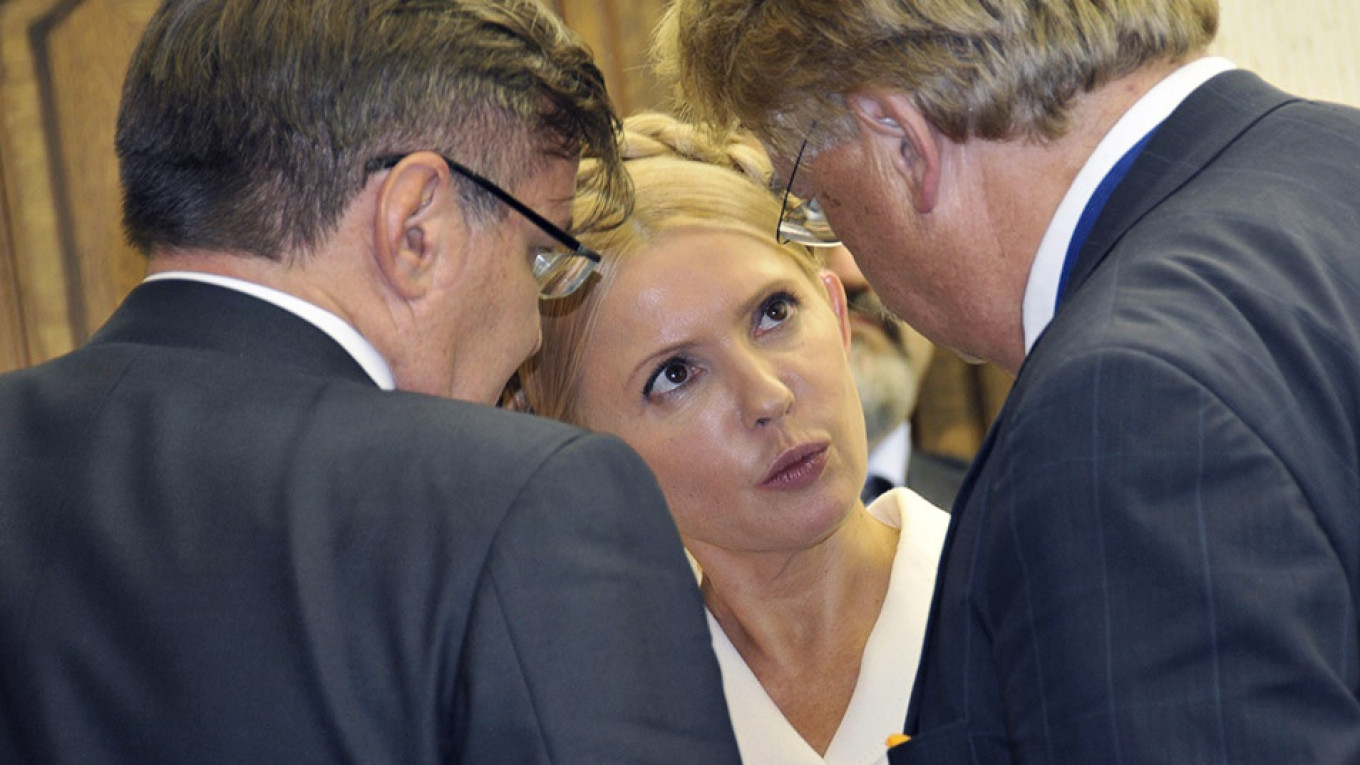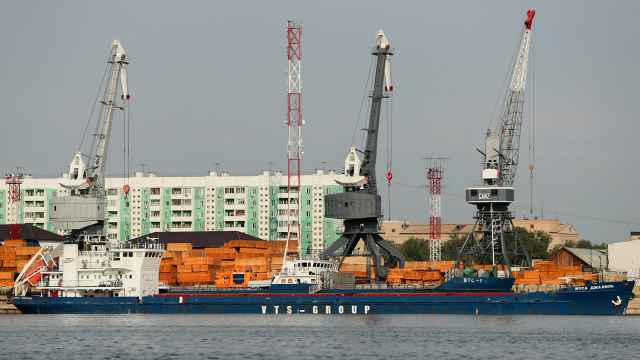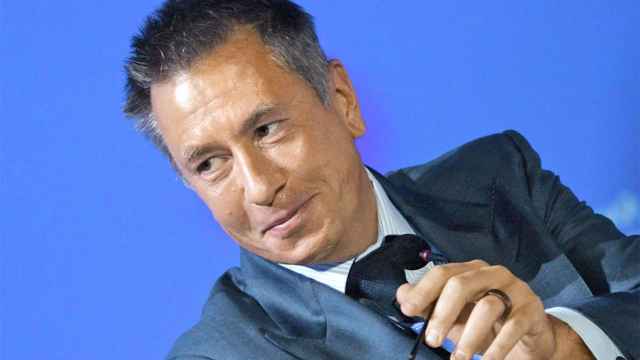Russia has imposed sweeping sanctions on Ukraine affecting 322 individuals and 68 businesses, including former PM Yulia Tymoshenko and Ukrainian President Petro Poroshenko's son.
President Vladimir Putin issued a decree late last month calling for new economic sanctions against Ukraine "in response to Ukraine’s unfriendly actions, related to the introduction of restrictive measures against citizens and legal entities of the Russian Federation." Russian-Ukrainian ties have deteriorated since Moscow’s annexation of the Crimean peninsula in 2014 and support for rebels in eastern Ukraine.
The new sanctions signed on Thursday by Russian Prime Minister Dmitry Medvedev were described as counter-measures drawn in response to Ukrainian sanctions against Moscow imposed earlier this year.
They impose freezes on the Russian assets of dozens of Ukrainian politicians and businesses.
"Special economic measures are introduced in relation to Ukrainian individuals and legal entities, including the freezing of non-cash funds, uncertified securities and property in Russia, and a ban on the withdrawal of capital from Russia,” a statement posted on the Russian government’s website said on Thursday.
Kremlin spokesperson Dmitry Peskov called the sanctions "a forced measure in response to... the multiple sanctions Ukraine [enacted] against Russian citizens and entities."
"Russia was not the instigator. But our Ukrainian colleagues have long worked in this sphere, and [our] response did not take long," he was cited as saying by the RBC news website.
Reuters contributed reporting to this article.
A Message from The Moscow Times:
Dear readers,
We are facing unprecedented challenges. Russia's Prosecutor General's Office has designated The Moscow Times as an "undesirable" organization, criminalizing our work and putting our staff at risk of prosecution. This follows our earlier unjust labeling as a "foreign agent."
These actions are direct attempts to silence independent journalism in Russia. The authorities claim our work "discredits the decisions of the Russian leadership." We see things differently: we strive to provide accurate, unbiased reporting on Russia.
We, the journalists of The Moscow Times, refuse to be silenced. But to continue our work, we need your help.
Your support, no matter how small, makes a world of difference. If you can, please support us monthly starting from just $2. It's quick to set up, and every contribution makes a significant impact.
By supporting The Moscow Times, you're defending open, independent journalism in the face of repression. Thank you for standing with us.
Remind me later.






